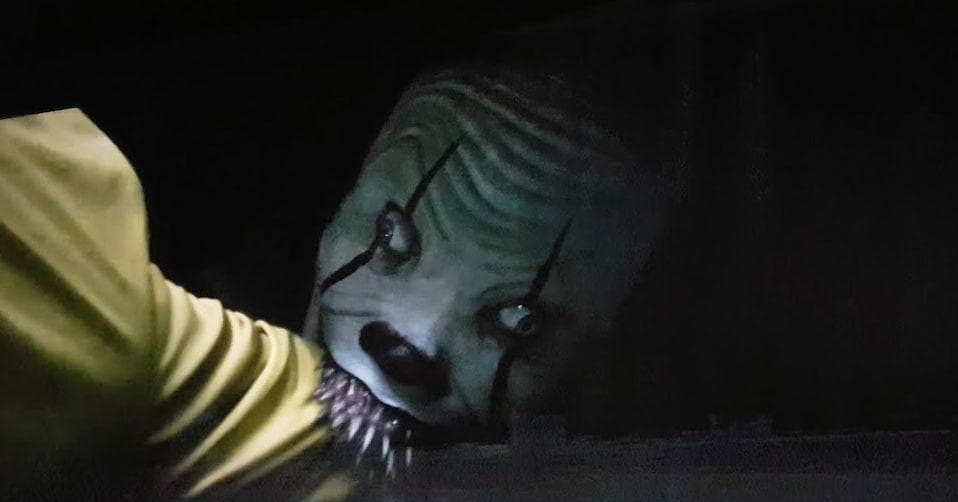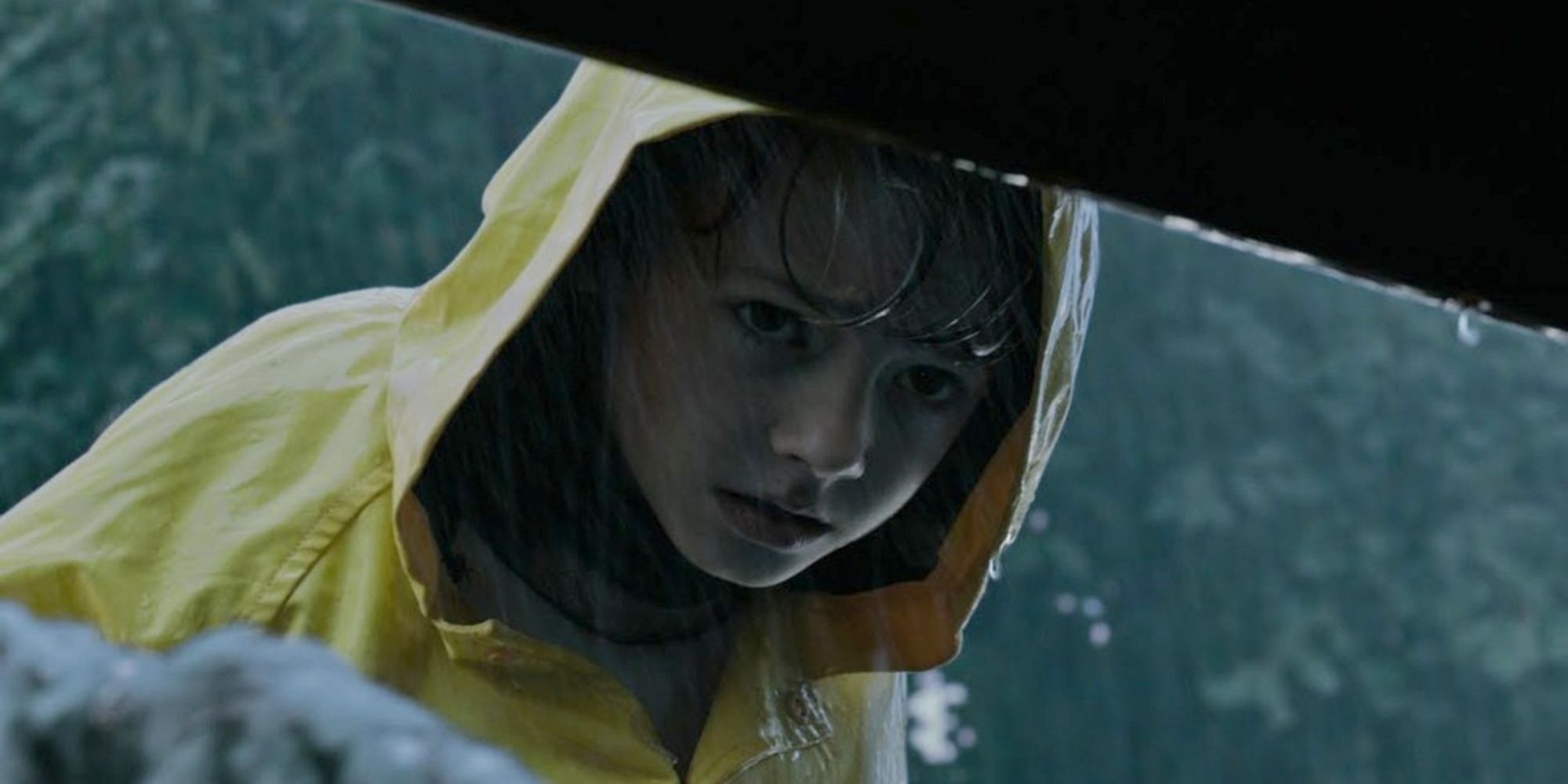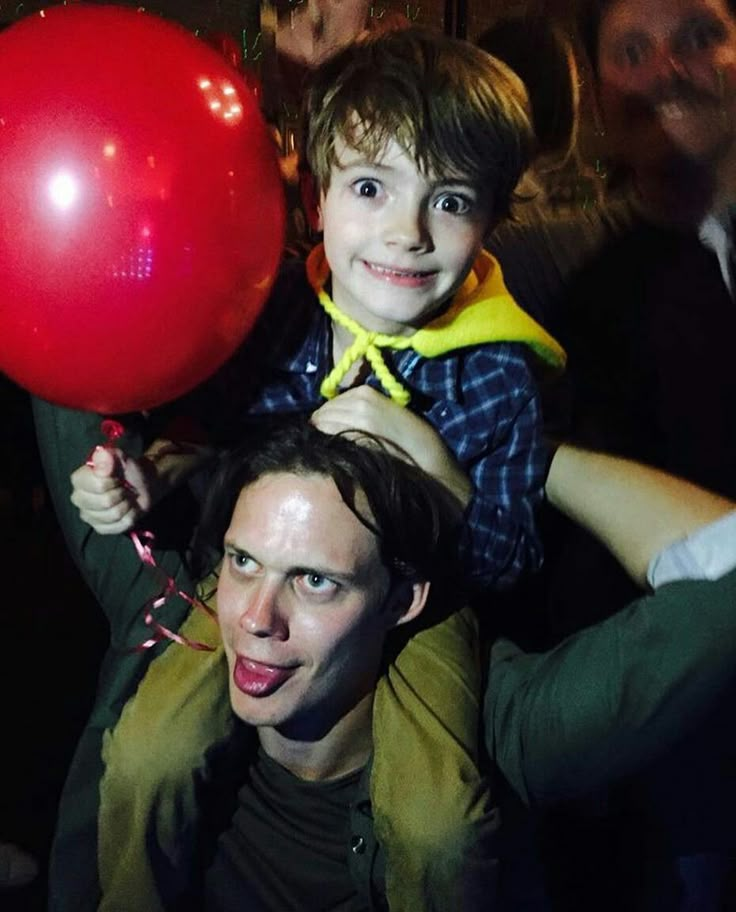Ideal Tips About Is Georgie Dead In It 2017

The Worst CGI Scenes In Horror Movies, Ranked
The Fate of Georgie Denbrough
1. Was Georgie Really a Goner?
Okay, let's talk about Georgie. Poor, sweet Georgie. From the moment he sets sail with his paper boat in the storm drain, we know things aren't going to end well. "Is Georgie dead in It 2017?" isn't really a question, is it? It's more of a gut-wrenching acceptance of the horror that kicks off the whole story. The scene is etched in our minds: a yellow raincoat, a friendly clown, and then...the unimaginable.
The film, like the book, doesn't shy away from showing us the brutal reality. Pennywise, in his disarming yet terrifying way, lures Georgie closer. And in a flash of teeth and crimson, Georgie's life is tragically cut short. It's a shocking moment, designed to unsettle us and establish Pennywise as a truly monstrous entity. So, to be blunt, yes. Georgie is most definitely dead. His death serves as the catalyst for everything that follows.
But here's where things get a little more complicated, and a little more Stephen King-esque. While Georgie's physical body is gone, his presence lingers throughout the film. He becomes a manifestation of the Losers' Club's deepest fears, a recurring image used by Pennywise to torment and manipulate them. Is it really Georgie they're seeing? Or is it Pennywise mimicking his form?
This question gets to the heart of what "It" is all about. It's not just about a killer clown; it's about childhood trauma, the power of memory, and the way fear can warp our perceptions. So, while Georgie's physical life is extinguished, his symbolic presence continues to haunt Derry, Maine, and the Losers' Club themselves. His death isn't just a plot point; it's the seed of the entire story.

Georgie's Death
2. The Symbolism Behind the Paper Boat
Georgie's death isn't simply a cheap jump scare. While Pennywise certainly delivers the frights, the scene is laden with symbolism. The paper boat, lovingly crafted by Bill, represents innocence, childhood dreams, and the bond between brothers. Its journey down the storm drain mirrors Georgie's own descent into danger.
The storm drain itself becomes a gateway to the unknown, a dark and terrifying underworld where Pennywise lurks. It's a stark contrast to the sunny, carefree world Georgie inhabits just moments before. This juxtaposition highlights the fragility of innocence and the ever-present threat of evil lurking beneath the surface of everyday life.
And then there's Pennywise, disguised as a friendly clown. This image preys on our inherent trust of adults and the joy we associate with childhood. By corrupting this image, Stephen King taps into a deep-seated fear of the unknown and the potential for danger in seemingly harmless situations. So, Georgie's death isn't just about the loss of a child; it's about the loss of innocence and the corruption of everything we hold dear.
Think about it: the image of that yellow raincoat floating down the flooded street is so striking, so disturbing, because it speaks to a universal fear — the fear of losing a child, the fear of the unknown, and the fear that something terrible can happen in the most ordinary of circumstances. Georgie's death becomes a symbol of all these things, a constant reminder of the darkness that lurks in Derry.

Stephen King's IT Everyone Who Died In Chapter 1 & 2
Pennywise's Manipulation
3. The Power of Guilt and Fear
After Georgie's death, Pennywise frequently uses Georgie's image to torment Bill and the other members of the Losers' Club. He knows that Georgie's death is a source of immense guilt and pain for Bill, and he exploits this vulnerability relentlessly. He appears as Georgie, sometimes beckoning Bill closer, sometimes simply standing there, a silent reminder of Bill's failure to protect his little brother.
This manipulation is a key part of Pennywise's strategy. He doesn't just rely on jump scares and monstrous appearances. He delves into the psychological vulnerabilities of his victims, using their deepest fears and regrets against them. By weaponizing Georgie's memory, he amplifies the Losers' Club's fear and weakens their resolve.
It's important to remember that what the Losers' Club sees isn't necessarily real. Pennywise is a shapeshifter, capable of taking on any form that will terrify his victims. The image of Georgie is simply a tool, a way for Pennywise to tap into their deepest anxieties and manipulate them into submission. Hes basically a nightmare fuel salesman.
The impact of this manipulation is profound. It not only increases the Losers' Club's fear but also drives a wedge between them. Bill is consumed by guilt and driven by a desperate desire to avenge Georgie's death, sometimes pushing the others beyond their limits. Pennywise effectively uses Georgie's memory to sow discord and weaken their unity, making them easier prey.

It (2017) Jackson Robert Scott As Denbrough IMDb
The Impact on Bill Denbrough
4. Driven by Loss
Georgie's death has a profound and lasting impact on Bill Denbrough. He becomes consumed by guilt, blaming himself for not being there to protect his little brother. This guilt fuels his determination to find Pennywise and avenge Georgie's death, even years after the initial tragedy. Bill's grief is a driving force throughout the entire story.
Bill's obsession with finding Georgie becomes almost all-consuming. He dedicates years of his life to researching the history of Derry, searching for clues that will lead him to Pennywise. This quest for vengeance is both admirable and destructive, pushing Bill to the brink of madness and straining his relationships with the other members of the Losers' Club.
The loss of Georgie also affects Bill's creative endeavors. As an adult, he becomes a successful horror writer, but his stories are often tinged with the darkness and trauma of his childhood. It's clear that Georgie's death continues to haunt him, influencing his work and shaping his perspective on the world. You could say he turned his pain into art, but a lot of people got hurt along the way.
Ultimately, Bill's journey is one of healing and redemption. He must confront his guilt, overcome his fear, and finally let go of the past in order to defeat Pennywise and find peace. Georgie's memory serves as both a burden and a motivation, driving Bill to confront his demons and ultimately triumph over evil. His brother's death, while tragic, becomes the catalyst for Bill's growth and his eventual victory.

Pin By Seán Fischbach On Bill Skarsgård Skarsgard, It The Clown
"It"
5. The Power of Childhood Trauma
While "It" is undeniably a horror story, it's also a powerful exploration of childhood trauma and its lasting impact on our lives. Georgie's death is just one example of the many horrors that the children of Derry face, from abusive parents to bullying to societal neglect. The film highlights the vulnerability of children and the importance of protecting them from harm.
The Losers' Club is formed out of shared trauma. Each member has experienced some form of abuse or neglect, and they find solace and strength in their friendship. Together, they are able to confront their fears and stand up to Pennywise, who represents the embodiment of their collective trauma. Its a ragtag group of misfits who find power in their shared experience.
"It" also explores the idea that childhood trauma can shape our adult lives. The members of the Losers' Club are all haunted by their past experiences, and they must confront these demons in order to defeat Pennywise. The film suggests that healing from trauma is a long and difficult process, but it is ultimately possible to overcome the darkness and find peace.
So, while the question "Is Georgie dead in It 2017?" is a simple one, the answer is far more complex. Georgie's death is not just a plot point; it's a symbol of the loss of innocence, the power of fear, and the lasting impact of childhood trauma. It's a reminder that even in the darkest of stories, there is always hope for healing and redemption. Plus, it makes you think twice about trusting clowns, right?
